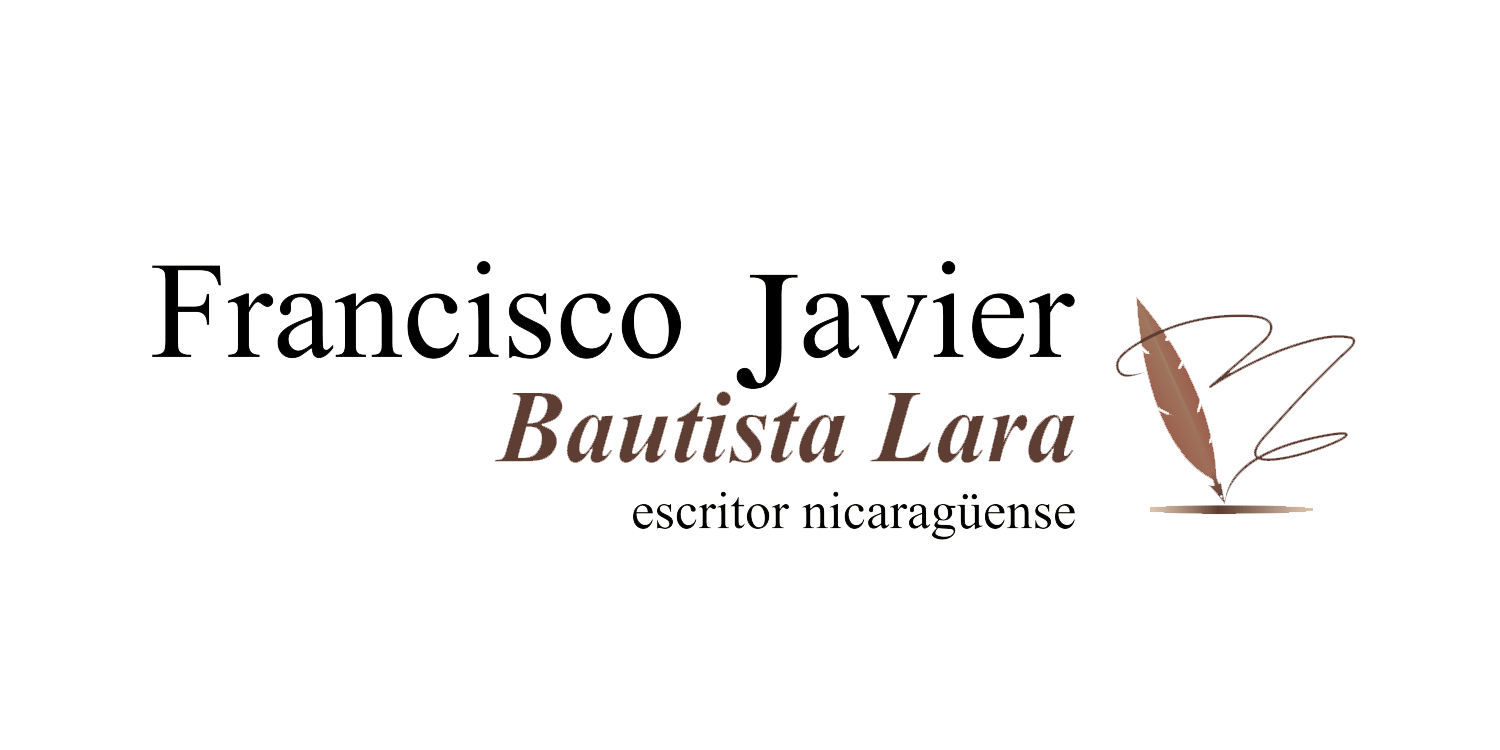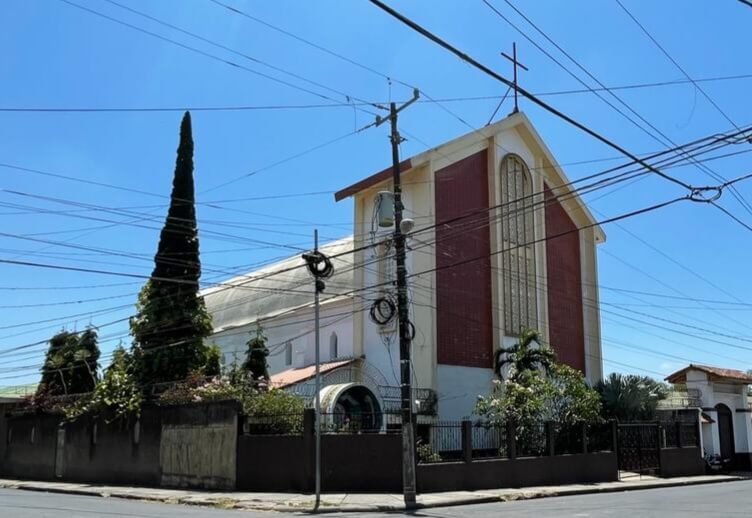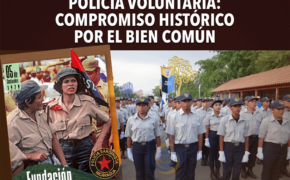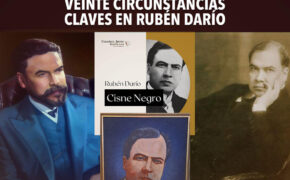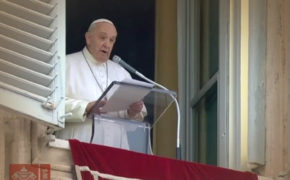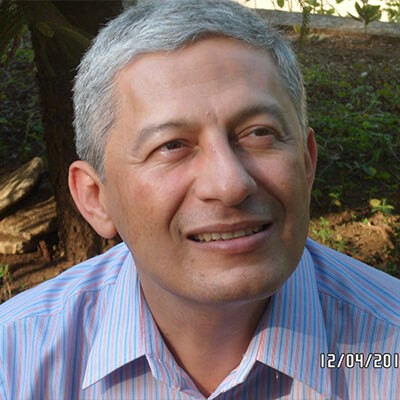NICARAGUA: COMPLETE RELIGIOUS FREEDOM FOR THE PEOPLE OF GOD
Managua, 15 March 2024, Lenten season.
“Authentic religion is a source of peace and not of violence! No one must use the name of God to commit violence! To kill in the name of God is a grave sacrilege. To discriminate in the name of God is inhuman.” Pope Francis (2014)
“Christ the Lord sowed the Word on all, without distinction. We are the soil, but we must know what kind of soil we are and how the Word falls on us.”
Cardinal José Brenes (July 2023)
Nicaragua is one of the Latin American countries with the most churches/temples/chapels/or houses of worship per square kilometer. Most are Catholic or Evangelical Christian temples of various denominations. Unlike what happens in other countries where religious spaces have to close their doors because government restrictions or a lack of parishioners make it impossible to keep them open, so they become cultural centers or private spaces, in Nicaragua there is a growing, free, and diverse flow of people to these churches. People exercise their faith option according to what suits their spiritual journey.
There are 18,335 churches/temples/chapels throughout the national territory. In a universe of 5.7 million believers, one third—some two million people—regularly attend weekend services. There is one house of worship per 7 km2, with an average of 314 believers at each one. According to available data, in Nicaragua there are 92,000 servants in these churches: 585 priests, 32,000 deacons, seminarians, brothers, nuns, preachers, missionaries, and pastors. Of these, 71% are Evangelicals in various congregations. There is a large number of nearby options for those who need and want to exercise their freedom to believe and practice the faith of their choice.
The M&R Consultants opinion poll (M&R, Nic.,16.08.2023), “Survey of Religious Affiliation, Participation, and Practices,” found that 81.7% of Nicaraguans say they believe in God. Of these, 34.2% are Catholic and 47.5% are Protestant. Comparisons of the faith in which people were raised show that Catholicism has seen its numbers fall over the past decade by 18.4 percentage points; Protestantism increased by 5.6 percentage points, and those with no denomination or non-believers went from 4.4% to 18.3% of the population (a gain of 13.9 percentage points). According to the survey, 82.6% feel there is religious freedom in the country. A survey in Spain (2013, Observatory of Religious Pluralism in Spain) found that 77.9% of the population feel they enjoy religious freedom.
Christianity is a deeply rooted socio-cultural tradition, whose practices are incorporated into the daily life of individuals, collectives, communities, and peoples. Its historical influences have permeated the collective imaginary transmitted from generation to generation, beyond any formal or hierarchical organization. Religiosity, with its rituals, beliefs, syncretism, and customs is one of the idiosyncrasies of our people. Nicaraguans’ devotion is based on a naive, simple, and fertile faith that seeks consolation and cultivates hope. It is the moral reserve of a community-based tradition of solidarity, commitment, and the good will of the People of God, regardless of the denomination in which one decides to congregate.
Surveys show that in 1995, 75% of our population was Catholic, 14% were Protestants, and 14% were either not in a formal religion or were non-believers. Two decades later, in 2017, these figures had shifted: 40% were Catholic, 32% were Protestant, and 28% were in other religions or were non-believers. What are the forecasts for the next three decades? All would indicate that a majority of Nicaraguans will continue to be Christian, but tied to a variety of denominations. In fact, many of those professing a faith—in exercise of their religious freedom—will not have formal ties to a religion, even as they hold on to faith and spiritual experiences with Christian features.
Since the public health crisis caused by the pandemic, by 2021, according to the Nicaraguan Evangelical Alliance, there are some 16,000 temples throughout the national territory with their respective pastors and associates. Each congregation is self-governed and establishes its own financial and administrative mechanisms to sustain itself. They accept contributions and tithing from the members; some receive international support, while other establish partnerships that bring together several churches based on common doctrines of affinities such as Assembly of God, Pentecostals, Baptist Convention, etc. The penetration of Evangelical churches evenly throughout the territory, the variety of doctrines represented, pastoral dynamics, and decentralized management are some of the advantages that allow these churches to attract ever more devotees, primarily among the working class and rural sectors.
We observe that there are more Evangelical churches in working class neighborhoods and rural districts than in upper-middle class residential areas. There is no barrio, neighborhood, or district without an Evangelical church; but in wealthier residential areas there may only be one Catholic church. This produces an expansion model that favors Evangelical congregations, including attracting more followers in working class areas. Take the example of Managua. In the Lomas del Valle residential neighborhood there is only one Catholic church. In the Colonia Centroamérica there is one Catholic parish and one Adventist church. In the Barrio Grenada there are nine Evangelical churches and one Catholic church. In the Barrio 22 de Enero, there are two Evangelical churches and one Catholic church. In Barrio Pantasma there are three Evangelical churches. In Barrio La Cruz del Paraíso, there are four Evangelical churches and one Catholic one. In the urban center of Diriamba (Carazo Department), there are three Catholic churches and 18 churches of other denominations.
The Seventh Day Adventist Church has 85 temples. The Church of Jesus Christ of Latter-Day Saints has 43 chapels and soon will open the first Mormon Temple in Nicaragua. In 1996 there were 17,000 Mormons in Nicaragua; by 2023 that had grown to 101,000 Latter-Day Saints, accounting for 1.5% of the population. Jehovah’s Witnesses, who congregate in Kingdom Halls, state that they have 466 congregations and 29,000 evangelizers, or one for every 240 inhabitants. The Moravian Church has 110,000 followers just on the Caribbean Coast. The Nicaraguan Diocese of the Anglican Church has 16 temples, several missions, and 9,000 members. The Muslim community of Nicaragua has some 400 members and in September of 2009 it opened its first Mosque.
Unlike the Evangelical churches that are organizationally fragmented and decentralized, the Roman Catholic Church has a doctrine, structure, and single hierarchy under the jurisdiction of the Holy See. In Nicaragua it is divided into one archdiocese and 8 dioceses, with 322 parishes (117 in the Archdiocese of Managua-Masaya-Carazo), and 1,408 pastoral centers (chapels). Within this territorial web of 1,730 houses of worship, the faithful congregate for Eucharistic celebrations, to celebrate the Word, and for other Catholic events and sacraments. This does not count the chapels that exist in schools, seminaries, religious congregations, and others that are used by those in such institutions and their neighbors.
As natural persons professing a religious belief, and in exercise of their rights and obligations, citizens are free to affiliate and participate in whatever church they so choose, with the level of commitment and intensity that they choose. Religious congregations, as legal entities, have legal, administrative, and civil obligations: first to their members who support them and belong to them according to a common faith; and second to the State in which they operate, which obliges them to abide by the laws and rules of the country and to exercise their rights and duties as legal entities.
The first ones to demand fulfillment of the social compact establishing a religious organization are its members. These people are joined by faith for common purposes and to participate in the entity they have created to meet their spiritual needs and give meaning to their lives. Failure to meet such obligations distorts the purpose of the entity and delegitimizes its existence. For entities to function within the rule of law in Nicaraguan society, they are subject to rules and regulations. Therefore, the actions of government institutions to keep things in order, regulate, and seek accountability, are aimed at preserving full religious freedom and the free participation of believers.
For centuries the Catholic Church had been engrossed in the monarchical, colonial European power structure. It was obliged to overcome its own fundamentalism to make way for religious freedom. John XXIII’s 1963 encyclical, Pacem in Terris, took a decisive step towards recognizing religious freedom as a human right. This established a new horizon for Catholics, a new way to look at the world that must lead to just and respectful pluralism. The doctrine of “tolerating other people’s religious beliefs” or “tolerance from above” no longer sufficed. Rather, Catholics were told to acknowledge diversity and “rights from below” as fundamental to the dignity of the human person. The declaration by the Second Vatican Council on religious freedom, Dignitatis Humanae (1965), surprisingly and significantly changed this concept in the Catholic Church. Not only did it recognize that “religious freedom and freedom of worship is a right belonging to all persons,” and that said freedom “belongs to the forum of each person’s conscience,” it also surpassed the traditional thesis of Catholic thought that assumed that only truth has a right, and that this truth belonged to the Catholic Church and that only those who possess these truths have the right to exist, while those who are wrong do not have such a right. The Declaration adds that “the Council insists broadly on religious freedom, which must be guaranteed to both persons and communities, respecting the legitimate demands of public order.” There are borders or limits throughout law; here the Council indicated what are “the legitimate demands of public order.”
Religion cannot be used as a pretext for hate or cruelty, for exclusion or marginalization. It cannot become a political banner for grandstanding or a mask to promote destabilization, foreign interference or intervention, or to provoke violence and destruction, to sow hate and fracture communities, to curtail hope for prosperity, peaceful coexistence, jobs, security, and the common good of our peoples.
The falsehoods that manipulators publish in some foreign media to discredit our religious freedom, which can be objectively disproven, are part of orchestrated attacks. They are based on the pernicious, interventionist political bias promoted by US imperialism through its tools of submission and with the complicity of local lackeys. They are engaging in a game of lies and destabilization, creating realities that do not exist, and spreading them through their virtual and media apparatus in a huge and persistent campaign to discredit Nicaragua’s legitimate and sovereign social and political process for self-determination, prosperity with equity and solidarity, and the common good, which Nicaragua continues to pursue with persistent dignity and unbending good will. When we look at the evidence without the contaminating prejudices of the aggressors, it is amply confirmed that no believers have been persecuted or prevented from practicing their faith or exercising the right to believe according to one’s conscience either privately or collectively. On the contrary: facilities are amply available and there are extensive possibilities for the People of God to freely congregate according to diverse beliefs and to make their own way in life.
The fact is that solid, stable, and growing freedom of religion and worship prevails in Nicaragua. Our cities are abundantly blessed with religious symbols—primarily Christian ones given the deep-rooted traditions and practices of the majority of the population, and thanks to public policies implemented by our government to favor the private and collective values and practices of our believers.
If any pastor, priest, bishop, or business owner acts against the common good, commits crimes, evades taxes, launders money, or collaborates with external, selfish actors to destabilize; if someone uses their position as a religious or business leader, or any position for such acts, they are not only committing crimes against the nation and society as a whole as a legally protected interest, they are also betraying the essence of the organization to which they belong and which they should serve, by acting against its very nature. The members of the organization should be the first to demand that these leaders act according to the mandate they have given them. The government, pursuant to its inescapable duty to uphold the common good within the rule of law, is obliged to intervene. No position or status should become synonymous with impunity when it threatens the peace, security, and common good of the majority of Nicaraguans. Preservation of peace, security, collective well-being, independence, and sovereignty are the inalienable rights of the nation and its citizens.
(Jill Clark`s translation)
